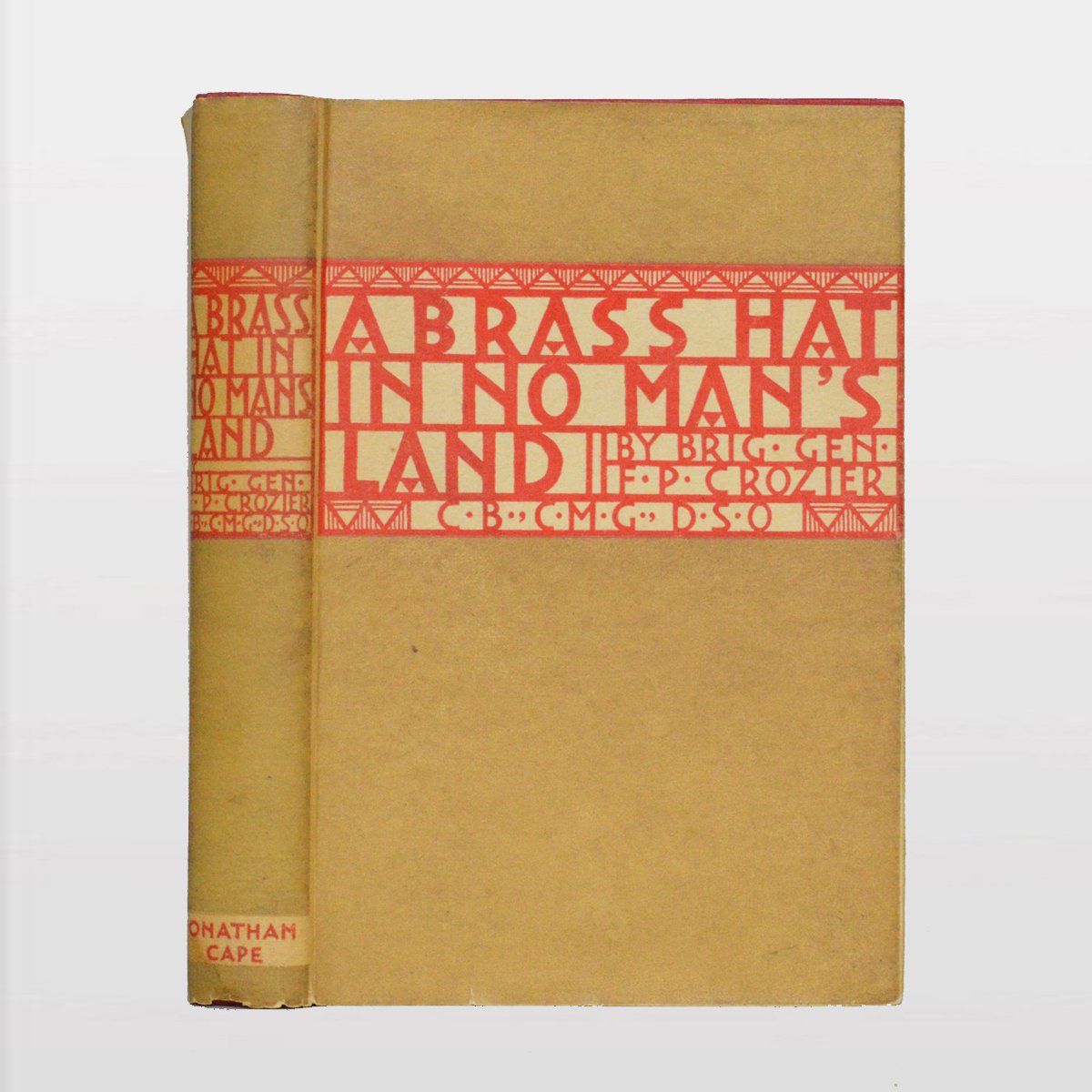 Image 1 of 2
Image 1 of 2

 Image 2 of 2
Image 2 of 2



A Brass Hat in No Man's Land. CROZIER (Brig.-Gen. F. P., C.B. C.M.G. D.S.O.)
Photographic frontispiece portrait and 11 plates.
First Edition. 8vo. [208 x 138 x 25 mm]. 254pp. Bound in the publisher's red cloth, the spine lettered in gilt, in the original brown dust-wrapper lettered in red on white (with trivial chip at foot of backstrip).
London: Jonathan Cape, 1930.
A little spotted around the edges, but a fine copy.
"This is a "front line" war book, written by a soldier, born and bred to war, and experienced in the art of killing, who, despite his snappy manner "on parade", was at all times a human being. He describes the creation of the blood lust in 1914, and the inculcation of martial ideas so that the enemy can be well met and matched, transference to France, and finally the arrival on the line [....]".
Brigadier-General Frank Crozier (1879-1937) first saw active service in the Boer War and West Africa before being forced to leave the army because of financial irresponsibility. He tried to start a new life in Canada and then, on his return to Britain, joined the Ulster Volunteer Force. On the outbreak of war he became second-in-command of a battalion in the 36th Ulster Division, becoming its commanding officer in autumn 1915 and leading it in action on 1 July 1916. Forbidden to stay on after the war, he became Inspector-General of the Lithuanian Army in late 1919, but resigned after six months. Made Commandant of the Auxiliary Division of the Royal Irish Constabulary at the height of the Troubles, he resigned in highly controversial circumstances. After being made bankrupt for a second time, he was involved in the League of Nations Union and then turned to pacifism, becoming a founding member of the Peace Pledge Union. By now he had, through his writings, become a thorn in the side of the Establishment.
Stock no. ebc7905
Photographic frontispiece portrait and 11 plates.
First Edition. 8vo. [208 x 138 x 25 mm]. 254pp. Bound in the publisher's red cloth, the spine lettered in gilt, in the original brown dust-wrapper lettered in red on white (with trivial chip at foot of backstrip).
London: Jonathan Cape, 1930.
A little spotted around the edges, but a fine copy.
"This is a "front line" war book, written by a soldier, born and bred to war, and experienced in the art of killing, who, despite his snappy manner "on parade", was at all times a human being. He describes the creation of the blood lust in 1914, and the inculcation of martial ideas so that the enemy can be well met and matched, transference to France, and finally the arrival on the line [....]".
Brigadier-General Frank Crozier (1879-1937) first saw active service in the Boer War and West Africa before being forced to leave the army because of financial irresponsibility. He tried to start a new life in Canada and then, on his return to Britain, joined the Ulster Volunteer Force. On the outbreak of war he became second-in-command of a battalion in the 36th Ulster Division, becoming its commanding officer in autumn 1915 and leading it in action on 1 July 1916. Forbidden to stay on after the war, he became Inspector-General of the Lithuanian Army in late 1919, but resigned after six months. Made Commandant of the Auxiliary Division of the Royal Irish Constabulary at the height of the Troubles, he resigned in highly controversial circumstances. After being made bankrupt for a second time, he was involved in the League of Nations Union and then turned to pacifism, becoming a founding member of the Peace Pledge Union. By now he had, through his writings, become a thorn in the side of the Establishment.
Stock no. ebc7905
